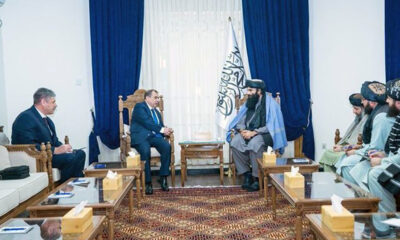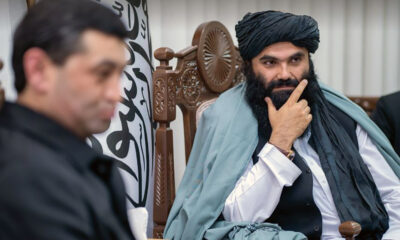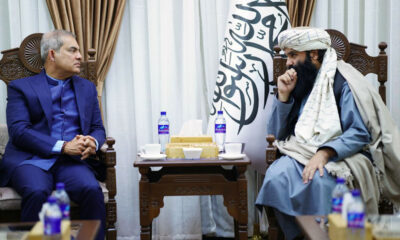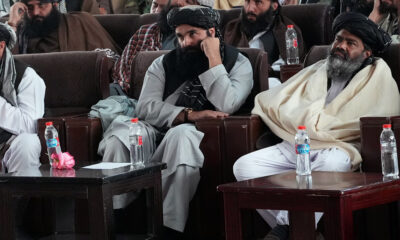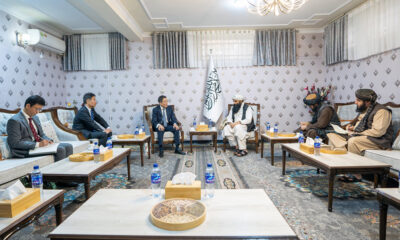Latest News
Ending domestic differences ends the war in Afghanistan – Sirajuddin Haqqani
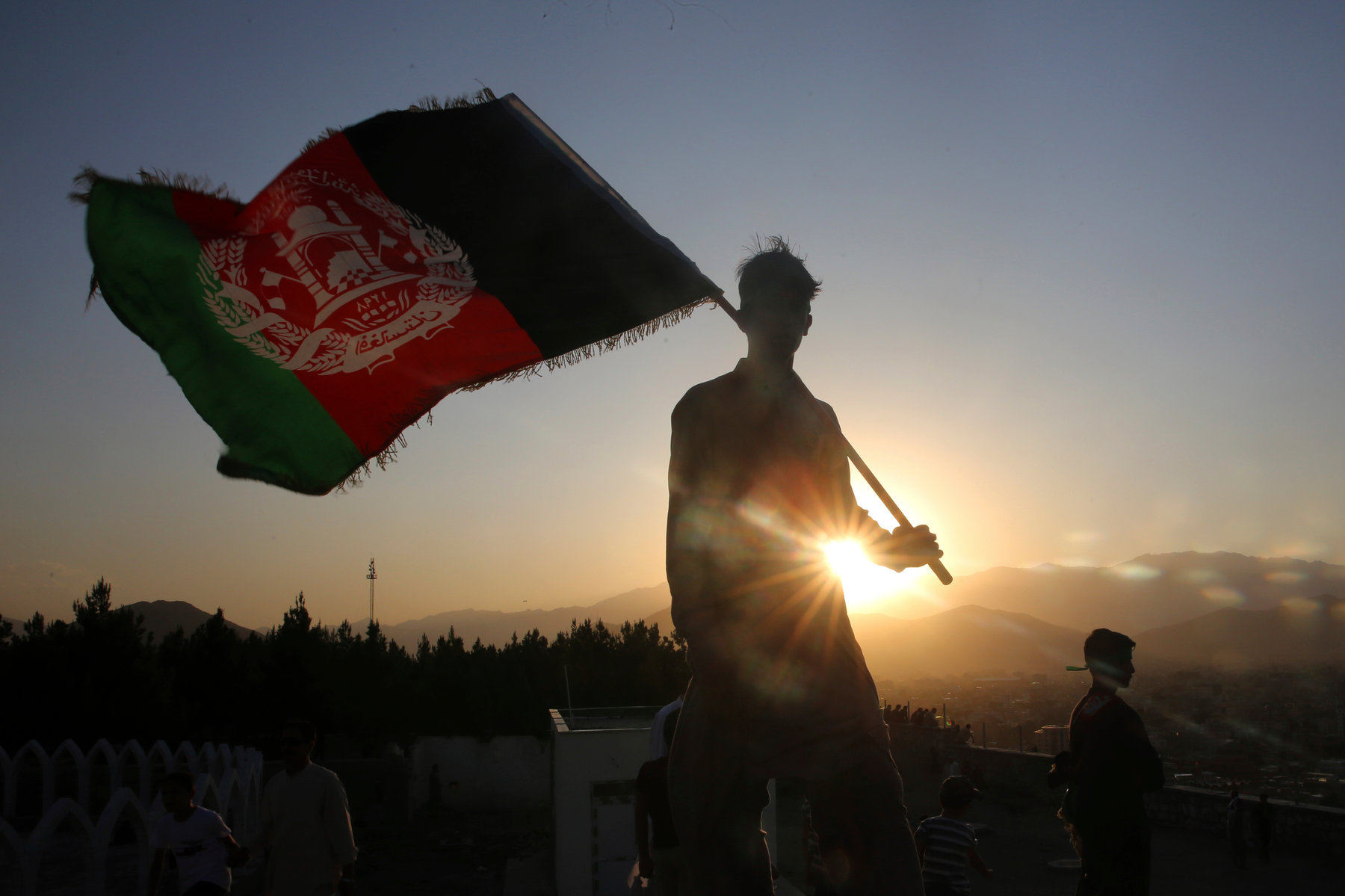
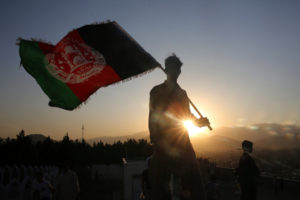 As the US and Taliban representatives are about to sign a peace deal, Sirajuddin Haqqani, the deputy leader of the Taliban said that “No peace agreement” comes without mutual compromises.
As the US and Taliban representatives are about to sign a peace deal, Sirajuddin Haqqani, the deputy leader of the Taliban said that “No peace agreement” comes without mutual compromises.
The two laterals are reportedly expected to sign a peace agreement following a 7-day probationary period of ‘reduction in violence’ later this month.
Haqqani, in a letter published by the New York Times, said that the Taliban “are about to sign an agreement with the United States and we are fully committed to carrying out its every single provision, in letter and spirit.”
He stressed that achieving the potential of the agreement, ensuring its success and earning lasting peace in Afghanistan would depend on an equally scrupulous observance by the United States of each of its commitments.
“Only then can we have complete trust and lay the foundation for cooperation — or even a partnership — in the future,” Haqqani said.
The letter noted the need for lasting peace in Afghanistan, as Haqqani said that the Afghans have suffered for more than four decades, “The long war has exacted a terrible cost from everyone… Everyone has lost somebody they loved.”
“Everyone is tired of war. I am convinced that the killing and the maiming must stop,” said Haqqani adding, “My fellow Afghans will soon celebrate this historic agreement.”
Meanwhile, Haqqani said that if the US and Taliban could reach an agreement, the intra-Afghan disagreement should be resolved through dialogue.
Haqqani, in the letter, considers the idea that Afghanistan is being used by disruptive groups to threaten regional and global security, calling it “inflated” and “politically motivated exaggerations” by the players of the war.
He writes, “We have already suffered enough from foreign interventions. We will take all measures in partnership with other Afghans to make sure the new Afghanistan is a bastion of stability and that nobody feels threatened on our soil.”
Afghanistan cannot afford to live in isolation. The new Afghanistan will be a responsible member of the international community, Haqqani said.
He further states that Afghans will remain committed to all international conventions as long as they are compatible with Islamic principles, adding that other countries are expected to respect the sovereignty and stability of Afghanistan and consider it as a ground for cooperation rather than competition and conflict.
Source: New York Times
Latest News
Girls’ education is a ‘vital issue’ for Afghanistan: Karzai

Former president Hamid Karzai said in a meeting with Iran’s ambassador and special representative, Hassan Kazemi Qomi, that education of girls was a “vital issue” for Afghanistan.
Karzai said he appreciated Iran’s cooperation and its standing with the Afghan people, especially Iran’s contributions to education in Afghanistan.
During the meeting, Karzai said peace and stability in the region are in the interest of all regional countries.
Latest News
Uzbekistan’s humanitarian aid arrives in Balkh

A shipment of humanitarian aid from Uzbekistan was handed over on Thursday to the local officials of Balkh province in the trade port of Hairatan.
Local authorities said the aid, which includes flour, oil, wheat, sugar and meat, has been handed over by Uzbekistan’s Surkhandarya governor to the governor of Balkh.
The governor of Surkhandarya stated the purpose of sending this aid was to support the people of Afghanistan and stressed the need for the development of good relations between the two countries.
Latest News
Afghanistan’s problems caused more damage to Pakistan than 3 wars with India: Durrani

Islamabad’s special envoy for Afghanistan Asif Durrani said on Wednesday that Pakistan has suffered more due to Afghanistan’s internal situation than Pakistan has suffered in three wars with India in terms of blood spilt and finances drained.
Durrani said at a one-day International Conference titled “Pakistan in the Emerging Geopolitical Landscape”, which was organized by the Institute of Strategic Studies Islamabad (ISSI) and the German Friedrich Ebert Stiftung (FES), that over 80,000 Pakistanis died in the two decades of the War on Terror and that his country was still counting its dead and injured.
“After the withdrawal of NATO forces, it was hoped that peace in Afghanistan would bring peace to the region. However, such expectations were short-lived,” he said.
He also stated that attacks by the Tehreek-e-Taliban Pakistan (TTP) militant group on Pakistan’s border areas increased by 65 percent, while suicide attacks increased by 500 percent.
“The TTP’s enhanced attacks on Pakistan while using Afghan soil have been a serious concern for Pakistan. Another worrying aspect is the participation of Afghan nationals in these attacks,” he said.
Durrani also said Pakistan had suffered geopolitically since the Soviet Union invaded the neighboring country.
“The post-9/11 world order has negatively impacted Pakistan. Apart from losing 80,000 citizens’ lives, including 8,000 law enforcement agency personnel, the country’s economic opportunity cost is estimated at $150 billion,” Durrani said.
Talking about the future outlook for Pakistan in the regional context, Durrani said that while “our eastern neighbor is likely to continue with its anti-Pakistan pursuits, the western border poses an avoidable irritant in the short to medium term.”
However, he said Pakistan can overcome its difficulties with Afghanistan, including the TTP challenge.
-

 Latest News5 days ago
Latest News5 days agoPakistan’s frontiers minister stresses ‘dignified’ return of Afghan refugees
-

 Latest News3 days ago
Latest News3 days agoRashid Khan named AWCC’s brand ambassador
-

 Regional3 days ago
Regional3 days agoIranian president lands in Pakistan for three-day visit to mend ties
-

 Climate Change4 days ago
Climate Change4 days agoMassive river flooding expected in China, threatening millions
-

 Latest News5 days ago
Latest News5 days agoChinese keen to invest in Panjshir-Kabul water conduit project
-

 World5 days ago
World5 days agoTwo Japan navy helicopters crash, one body found, 7 missing
-

 Sport4 days ago
Sport4 days agoKolkata beat Bengaluru by one run in IPL as Kohli fumes at dismissal
-

 Sport4 days ago
Sport4 days agoACL: Aino Mina 3-0 Istiqlal Kabul; Attack Energy 3-0 Khadim


